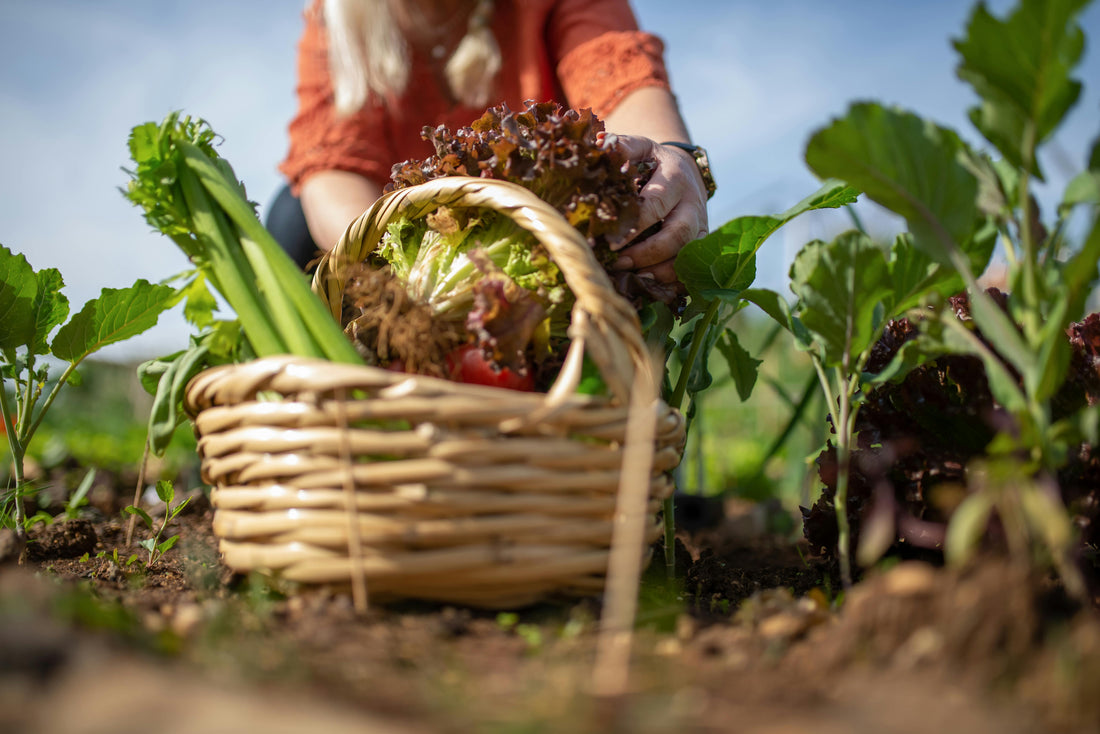
5 Quick Ways to Make Your Diet More Sustainable (Without Compromising Nutrition)
Sustainability isn’t just a buzzword — it’s a practical, powerful lens through which we can make better choices for our health and the planet. Fortunately, adopting a more sustainable diet doesn’t require an overnight overhaul or a complete lifestyle change. Even small shifts in your daily meals can make a big impact. Here are five quick, nutrient-rich ways to make your diet more sustainable — starting today. We here at Vitaminis are here to support!
1. Embrace Plant-Based Swaps (Even Just Once a Day)
You don’t need to become vegan to eat more sustainably. Even swapping out one animal-based meal a day with a plant-forward alternative can reduce your environmental footprint and improve your health. Think lentil tacos instead of beef, or a chickpea salad sandwich in place of tuna. Plant proteins like beans, lentils, tofu, and tempeh are high in fiber, iron, and other key nutrients — and they use significantly less water and land to produce.
Try it today: Make your next lunch meatless. Use hummus and avocado for creaminess, and pile on colorful veggies for crunch. Finish off with a Vitaminis shot!
2. Cook With Seasonal, Local Produce
Eating seasonally helps cut down on the emissions from long-distance transportation and supports local farmers. Bonus: seasonal produce is often fresher, more flavorful, and more nutrient-dense. Not sure what’s in season? Look for farmer’s markets in your area or check out seasonal produce guides online.
Try it today: Buy one new in-season fruit or vegetable this week and build a meal around it. Think summer zucchini stir-fry or a fall roasted squash bowl.
3. Integrate More Nutrient-Dense and Fortified Foods
To maximize nutrition while keeping sustainability in mind, focus on nutrient-dense foods that deliver more vitamins, minerals, and beneficial compounds per serving. These include leafy greens, berries, nuts, seeds, and whole grains. Additionally, fortified foods — such as plant milks with added calcium and vitamin D or cereals enriched with B vitamins — can help fill nutritional gaps, especially when reducing animal products.
Try it today: Add a handful of spinach or kale to your smoothie or stir-fry, or choose a fortified plant-based milk in your morning cereal or coffee. Mix a Vitaminis with your smoothie or toss one in your purse for a snack on-the-go.
4. Choose Whole Foods Over Ultra-Processed Ones
Ultra-processed foods often come with excess packaging, added sugars, and fewer nutrients. Shifting toward whole, minimally processed foods not only supports a healthier gut and metabolism, but also reduces the environmental impact of food production and packaging waste.
Try it today: Replace one packaged snack with a whole-food alternative — like nuts, fruit, or roasted chickpeas.
5. Diversify Your Protein Sources
Most diets rely heavily on just a few protein sources — usually meat, poultry, or dairy. By diversifying your protein intake to include legumes, seeds, whole grains (like quinoa or farro), and even seaweed, you promote agricultural biodiversity and give your body a broader spectrum of nutrients.
Try it today: Add hemp seeds, chia, or black beans to your next salad or grain bowl.
Small Steps, Big Impact
You don’t have to eat perfectly to eat sustainably. Every meal is a chance to make a choice that supports your health and the planet. By introducing more plants, increasing nutrient density, and making intentional swaps, you can build a sustainable diet that’s not only nourishing, but also empowering. Start small — and stick with what feels doable. Your future self (and the Earth) will thank you, and we here at Vitaminis are here to support. Vitaminis: Drink Your Vitamins.
